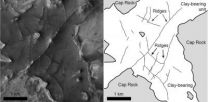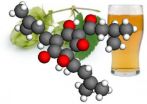(Press-News.org) CHESTNUT HILL, Mass. — Getting people to think about morality as a matter of objective facts rather than subjective preferences may lead to improved moral behavior, Boston College researchers report in the Journal of Experimental Social Psychology.
In two experiments, one conducted in-person and the other online, participants were primed to consider a belief in either moral realism (the notion that morals are like facts) or moral antirealism (the belief that morals reflect people's preferences) during a solicitation for a charitable donation. In both experiments, those primed with moral realism pledged to give more money to the charity than those primed with antirealism or those not primed at all.
"There is significant debate about whether morals are processed more like objective facts, like mathematical truths, or more like subjective preferences similar to whether vanilla or chocolate tastes better," said lead researcher Liane Young, assistant professor of psychology at Boston College. "We wanted to explore the impact of these different meta-ethical views on actual behavior."
Ideas have previously been advanced on the subject, but Young and her former research assistant A.J. Durwin, now a law student at Hofstra University, are the first to directly investigate the question.
In one experiment, a street canvasser attempted to solicit donations from passersby for a charity that aids impoverished children. Participants in one set were asked a leading question to prime a belief in moral realism: "Do you agree that some things are just morally right or wrong, good or bad, wherever you happen to be from in the world?" Those in a second set were asked a question to prime belief in moral antirealism: "Do you agree that our morals and values are shaped by our culture and upbringing, so there are no absolute right answers to any moral questions?" Participants in a control set were not asked any priming question.
In this experiment, participants primed with realism were twice as likely to be donors, compared to those primed with antirealism or not primed at all.
A second experiment, conducted online, yielded similar results. Participants asked to donate money to a charity of their choice who were primed with realism reported being willing to give more than those primed with antirealism or not primed at all.
"Priming participants to consider the notion that morals are like facts increased decisions to donate in both experiments, revealing the potential impact of meta-ethical views on everyday decision-making," said Young. "Simply asking participants to consider moral values, as we did with the antirealism prime, did not produce an effect," she said, "so priming morality in general may not necessarily lead to better behavior. Considering the existence of non-negotiable moral facts may have raised the stakes and motivated participants to behave better."
Since "real" moral stakes may be accompanied by "real" consequences —whether good (e.g., helping others, enhanced self-esteem) or bad (e.g., retribution), priming a belief in moral realism may in fact prompt people to behave better, in line with their existing moral beliefs, the researchers say.
The researchers note that priming a belief in moral realism may enhance moral behavior under certain conditions — such as when the right thing to do is relatively unambiguous (e.g., it is good to be generous). A different outcome could be possible when subjects are faced with more controversial moral issues, they say.
Liane Young's research frequently focuses on the psychology and neuroscience of moral judgment and behavior. In 2012, she was awarded a Sloan Research Fellowship from the Alfred P. Sloan Foundation, and was named a Dana Neuroscience Scholar by the Dana Foundation, which also awarded her a three-year grant to support her study of brain activity and moral decision-making in individuals with autism, a project that will provide a valuable research opportunity for BC undergraduates. In addition, she received the 2011 Early Career Award for Distinguished Scientific Contributions to Social Neuroscience from the Society for Social Neuroscience, among other honors.
Her research on attributions of responsibility to groups (e.g., corporations) versus members of groups was published in the journal Psychological Science in 2012; she is also co-author of a study of moral judgments in adults with autism that was reported in the Proceedings of the National Academy of Sciences.
INFORMATION:
The study, "Moral Realism as Moral Motivation: The Impact of Meta-Ethics on Everyday Decision-Making," was made possible through the support of a grant from the John Templeton Foundation. It appears in the March 2013 print edition of the Journal of Experimental Social Psychology and is available online at http://dx.doi.org/10.1016/j.jesp.2012.11.013.
'Moral realism' may lead to better moral behavior
New report by Boston College researchers
2013-01-29
ELSE PRESS RELEASES FROM THIS DATE:
New American Chemical Society podcast: Boosting the sensitivity of airport security screening
2013-01-29
The latest episode in the American Chemical Society's (ACS') award-winning Global Challenges/Chemistry Solutions podcast series reports a simple way to improve the sensitivity of the test often used to detect traces of explosives on the hands, carry-ons and other possessions of passengers at airport security screening stations.
Based on a report by Yehuda Zeiri, Ph.D., and colleagues in ACS' The Journal of Physical Chemistry C, the new podcast is available without charge at iTunes and from www.acs.org/globalchallenges.
In the new episode, Zeiri explains that most ...
NSF-funded team samples Antarctic lake beneath the ice sheet
2013-01-29
In a first-of-its-kind feat of science and engineering, a National Science Foundation (NSF)-funded research team has successfully drilled through 800 meters (2,600 feet) of Antarctic ice to reach a subglacial lake and retrieve water and sediment samples that have been isolated from direct contact with the atmosphere for many thousands of years.
Scientists and drillers with the interdisciplinary Whillans Ice Stream Subglacial Access Research Drilling project (WISSARD) announced Jan. 28 local time (U.S. stations in Antarctica keep New Zealand time) that they had used a ...
Fossilized conduits suggest water flowed beneath Martian Surface
2013-01-29
PROVIDENCE, R.I. [Brown University] — Networks of narrow ridges found in impact craters on Mars appear to be the fossilized remnants of underground cracks through which water once flowed, according to a new analysis by researchers from Brown University.
The study, in press in the journal Geophysical Research Letters, bolsters the idea that the subsurface environment on Mars once had an active hydrology and could be a good place to search for evidence of past life. The research was conducted by Lee Saper, a recent Brown graduate, with Jack Mustard, professor of geological ...
Researchers find gene that turns up effect of chemotherapy
2013-01-29
Chemotherapy is one of the most common treatments for cancer patients. However, many patients suffer from serious side-effects and a large proportion does not respond to the treatment. Researchers from the Biotech Research and Innovation Centre (BRIC) and Center for Healthy Aging, University of Copenhagen, now show that the gene FBH1 helps turn up the effect of chemotherapy.
"Our results show that the gene FBH1 is crucial in order for some chemotherapeutics to become active in the body and kill the cancer cells. If we can find a feasible method to increase the activity ...
Hydrogen sulfide: The next anti-aging agent?
2013-01-29
Hydrogen sulfide (H2S) may play a wide-ranging role in staving off aging, according to a paper published online ahead of print in the journal Molecular and Cellular Biology. In this review article, a team from China explores the compound's plethora of potential anti-aging pathways.
"H2S has been gaining increasing attention as an important endogenous signaling molecule because of its significant effects on the cardiovascular and nervous systems," the team writes. The evidence is mounting, they note, that hydrogen sulfide slows aging by inhibiting free-radical reactions, ...
New OHSU research helps explain early-onset puberty in females
2013-01-29
BEAVERTON, Ore. - New research from Oregon Health & Science University has provided significant insight into the reasons why early-onset puberty occurs in females. The research, which was conducted at OHSU's Oregon National Primate Research Center, is published in the current early online edition of the journal Nature Neuroscience.
The paper explains how OHSU scientists are investigating the role of epigenetics in the control of puberty. Epigenetics refers to changes in gene activity linked to external factors that do not involve changes to the genetic code itself. The ...
Tomorrow's life-saving medications may currently be living at the bottom of the sea
2013-01-29
PORTLAND, Ore. – OHSU researchers, in partnership with scientists from several other institutions, have published two new research papers that signal how the next class of powerful medications may currently reside at the bottom of the ocean. In both cases, the researchers were focused on ocean-based mollusks – a category of animal that includes snails, clams and squid and their bacterial companions.
Sea life studies aid researchers in several ways, including the development of new medications and biofuels. Because many of these ocean animal species have existed in ...
Beer's bitter compounds could help brew new medicines
2013-01-29
Researchers employing a century-old observational technique have determined the precise configuration of humulones, substances derived from hops that give beer its distinctive flavor.
That might not sound like a big deal to the average brewmaster, but the findings overturn results reported in scientific literature in the last 40 years and could lead to new pharmaceuticals to treat diabetes, some types of cancer and other maladies.
"Now that we have the right results, what happens to the bitter hops in the beer-brewing process makes a lot more sense," said Werner ...
Annals of Internal Medicine early release article for Jan. 29, 2013
2013-01-29
Philadelphia, January 29, 2012 – The Center for Disease Control and Prevention's Advisory Committee on Immunization Practices (ACIP) announced its recommended 2013 adult immunization schedule that includes important updates to the pneumococcal, Tdap (tetanus, diphtheria, and acellular pertussis), and influenza vaccines. Because current vaccination rates are low, ACIP also urges health care providers to regularly assess patient vaccination histories and implement intervention strategies to increase adherence. This recommendation will be published in Annals of Internal Medicine, ...
Study finds significant microorganism populations in middle and upper troposphere
2013-01-29
In what is believed to be the first study of its kind, researchers used genomic techniques to document the presence of significant numbers of living microorganisms – principally bacteria – in the middle and upper troposphere, that section of the atmosphere approximately four to six miles above the Earth's surface.
Whether the microorganisms routinely inhabit this portion of the atmosphere – perhaps living on carbon compounds also found there – or whether they were simply lofted there from the Earth's surface isn't yet known. The finding is of interest to atmospheric scientists, ...
LAST 30 PRESS RELEASES:
Evidence behind intermittent fasting for weight loss fails to match hype
How AI tools like DeepSeek are transforming emotional and mental health care of Chinese youth
Study finds link between sugary drinks and anxiety in young people
Scientists show how to predict world’s deadly scorpion hotspots
ASU researchers to lead AAAS panel on water insecurity in the United States
ASU professor Anne Stone to present at AAAS Conference in Phoenix on ancient origins of modern disease
Proposals for exploring viruses and skin as the next experimental quantum frontiers share US$30,000 science award
ASU researchers showcase scalable tech solutions for older adults living alone with cognitive decline at AAAS 2026
Scientists identify smooth regional trends in fruit fly survival strategies
Antipathy toward snakes? Your parents likely talked you into that at an early age
Sylvester Cancer Tip Sheet for Feb. 2026
Online exposure to medical misinformation concentrated among older adults
Telehealth improves access to genetic services for adult survivors of childhood cancers
Outdated mortality benchmarks risk missing early signs of famine and delay recognizing mass starvation
Newly discovered bacterium converts carbon dioxide into chemicals using electricity
Flipping and reversing mini-proteins could improve disease treatment
Scientists reveal major hidden source of atmospheric nitrogen pollution in fragile lake basin
Biochar emerges as a powerful tool for soil carbon neutrality and climate mitigation
Tiny cell messengers show big promise for safer protein and gene delivery
AMS releases statement regarding the decision to rescind EPA’s 2009 Endangerment Finding
Parents’ alcohol and drug use influences their children’s consumption, research shows
Modular assembly of chiral nitrogen-bridged rings achieved by palladium-catalyzed diastereoselective and enantioselective cascade cyclization reactions
Promoting civic engagement
AMS Science Preview: Hurricane slowdown, school snow days
Deforestation in the Amazon raises the surface temperature by 3 °C during the dry season
Model more accurately maps the impact of frost on corn crops
How did humans develop sharp vision? Lab-grown retinas show likely answer
Sour grapes? Taste, experience of sour foods depends on individual consumer
At AAAS, professor Krystal Tsosie argues the future of science must be Indigenous-led
From the lab to the living room: Decoding Parkinson’s patients movements in the real world
[Press-News.org] 'Moral realism' may lead to better moral behaviorNew report by Boston College researchers




